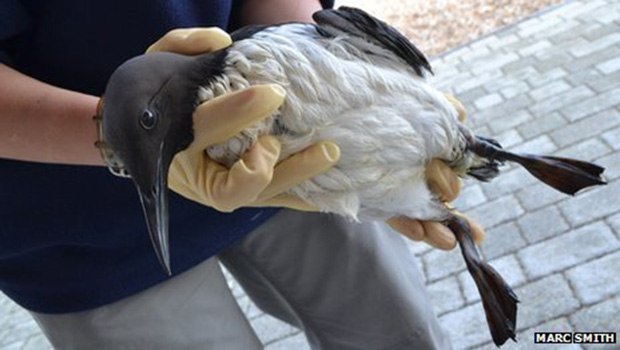A two-day workshop to help educate environmental staff about how to deal with coastal pollution in Dorset started yesterday.
The Maritime and Coastguard Agency organised the training course for all of Dorset’s environment and wildlife authorities.
Peter Tinsley, Living Seas Manager for Dorset Wildlife Trust said that the course is a good idea but that the real issue is ships releasing or spilling these chemicals.
“One of the main problems of coastal pollution in Dorset is to bring awareness of the safety of the ships, especially when they are carrying hostile cargos.
On the course, attendees will learn about clearing up coastal pollution, inshore recovery, dealing with oil spills and how to use floating booms to help minimise the spread of spills.
This training course comes after an unknown vessel released PIB, a sticky rubbery chemical, which caused the death of hundreds of birds who were washed up on the Dorset coast in January.
The spill caused more controversy when it was revealed there were conditions under which the chemical could have been released into the sea legally.
Mr Tinsley said: “There should be more regulations of the ships. People should know what’s on board and where they are going.”
The English Channel is used by almost 20 per cent of the worlds shipping traffic, comprising more than 126,000 ships carrying 354 million tonnes of hazardous cargo every year.
Main image credit: Marc Smith





